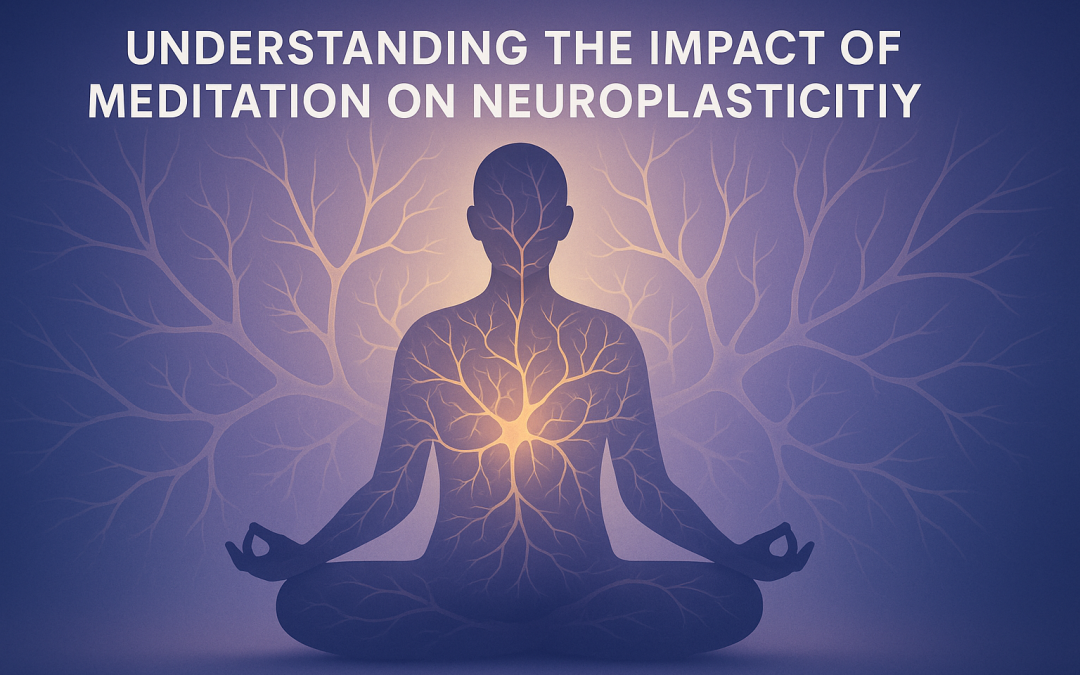Understanding the Impact of Meditation on Neuroplasticity
In today’s fast-paced world, mindfulness and meditation have become more than just buzzwords. They are essential practices that many individuals turn to for mental clarity and stress reduction. But did you know that meditation can also influence the brain’s structure and function? In this blog post, we’ll dive deep into the fascinating connection between meditation and neuroplasticity, exploring how these practices can literally reshape your brain. ??
Table Of Contents
1. What is Neuroplasticity?
2. How Does Meditation Affect the Brain?
3. Scientific Evidence Supporting Meditation and Neuroplasticity
4. Practical Meditation Techniques to Boost Neuroplasticity
5. Personal Stories: Transformation Through Meditation
6. FAQs
7. Conclusion
What is Neuroplasticity?
Neuroplasticity, often referred to as brain plasticity, is the brain’s remarkable ability to reorganize itself by forming new neural connections throughout life. This process allows the brain to adjust, adapt, and even recover from injuries. It’s the reason you can learn new skills, adapt to new environments, and even rewire your brain for better mental health.
How Does Meditation Affect the Brain?
Meditation, a practice that involves focused attention, emotional regulation, and self-reflection, can significantly impact the brain’s structure and function. Here’s how:
1. Increased Gray Matter: Studies have shown that regular meditation leads to an increase in gray matter density in areas of the brain associated with memory, sense of self, empathy, and stress regulation.
2. Strengthened Connections: Meditation strengthens the connections between brain cells, enhancing communication and efficiency within the brain.
3. Reduced Amygdala Activity: The amygdala, the brain’s fight-or-flight center, shows decreased activity in meditators, leading to better stress management and emotional regulation.
Scientific Evidence Supporting Meditation and Neuroplasticity
Research on meditation and its effects on neuroplasticity has grown extensively over the past few decades. Here are some key findings:
1. Harvard Study: A study conducted by Harvard researchers found that just eight weeks of mindfulness meditation resulted in measurable changes in brain regions associated with memory, sense of self, empathy, and stress regulation.
2. UCLA Research: Researchers at UCLA discovered that long-term meditators have larger volumes of gray matter in their brains, suggesting that meditation could help preserve brain structure as we age.
3. University of Wisconsin-Madison: This study found that meditation can increase the thickness of the prefrontal cortex, which is responsible for higher-order brain functions like awareness, concentration, and decision-making.
Practical Meditation Techniques to Boost Neuroplasticity
If you’re new to meditation or looking to enhance your practice, here are some techniques that can help maximize the benefits for your brain:
1. Mindfulness Meditation: Focus on the present moment without judgment. This practice encourages awareness and acceptance of the current experience.
2. Loving-Kindness Meditation: Cultivate compassion by focusing on sending love and positive thoughts to yourself and others.
3. Guided Visualization: Use guided imagery to promote relaxation and mental clarity. Visualize yourself succeeding in various aspects of your life.
4. Body Scan: Bring attention to different parts of your body, promoting relaxation and awareness of bodily sensations.
Personal Stories: Transformation Through Meditation
Many individuals have experienced profound changes through meditation. Sarah, a 35-year-old teacher, shares how meditation helped her manage anxiety and improve her focus. “Meditation became my anchor,” she says. “It transformed my approach to stress, and I found myself becoming more resilient and emotionally balanced.”
Similarly, John, a busy executive, credits meditation for enhancing his creativity and problem-solving skills. “It’s like my brain got a reboot,” he explains. “I think more clearly and make decisions with confidence.”
FAQs
1. How long do I need to meditate to see changes in my brain?
Even short daily sessions can start making a difference. Significant changes have been observed in as little as eight weeks of regular practice.
2. Can meditation help with mental health conditions?
Yes, meditation has been shown to reduce symptoms of anxiety, depression, and stress, contributing to improved mental health.
3. Is it ever too late to start meditating for brain benefits?
Never! The brain remains plastic throughout life, so it’s always a good time to start meditating.
Conclusion
Meditation offers a profound way to tap into the brain’s natural ability to change and adapt. By engaging in regular meditation practices, you not only enhance your mental well-being but also promote neuroplasticity, keeping your brain healthy and resilient. Whether you’re a novice or seasoned meditator, the transformative power of meditation is within your reach. Start today, and watch your brain—and life—transform. ????????
Roshiwave Meditation Mind Machine
Add CTA sections description.


